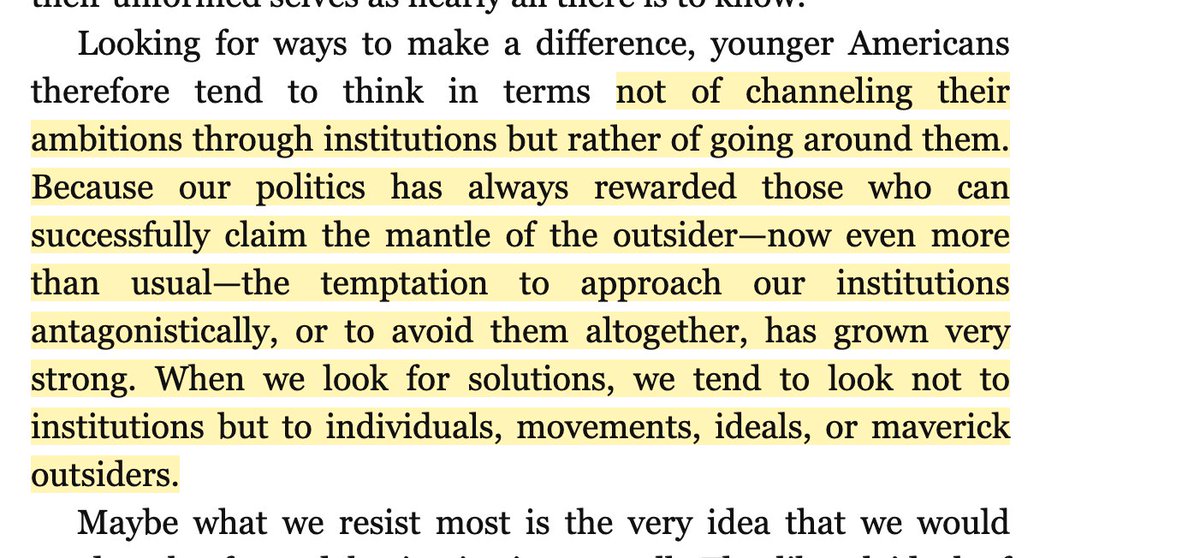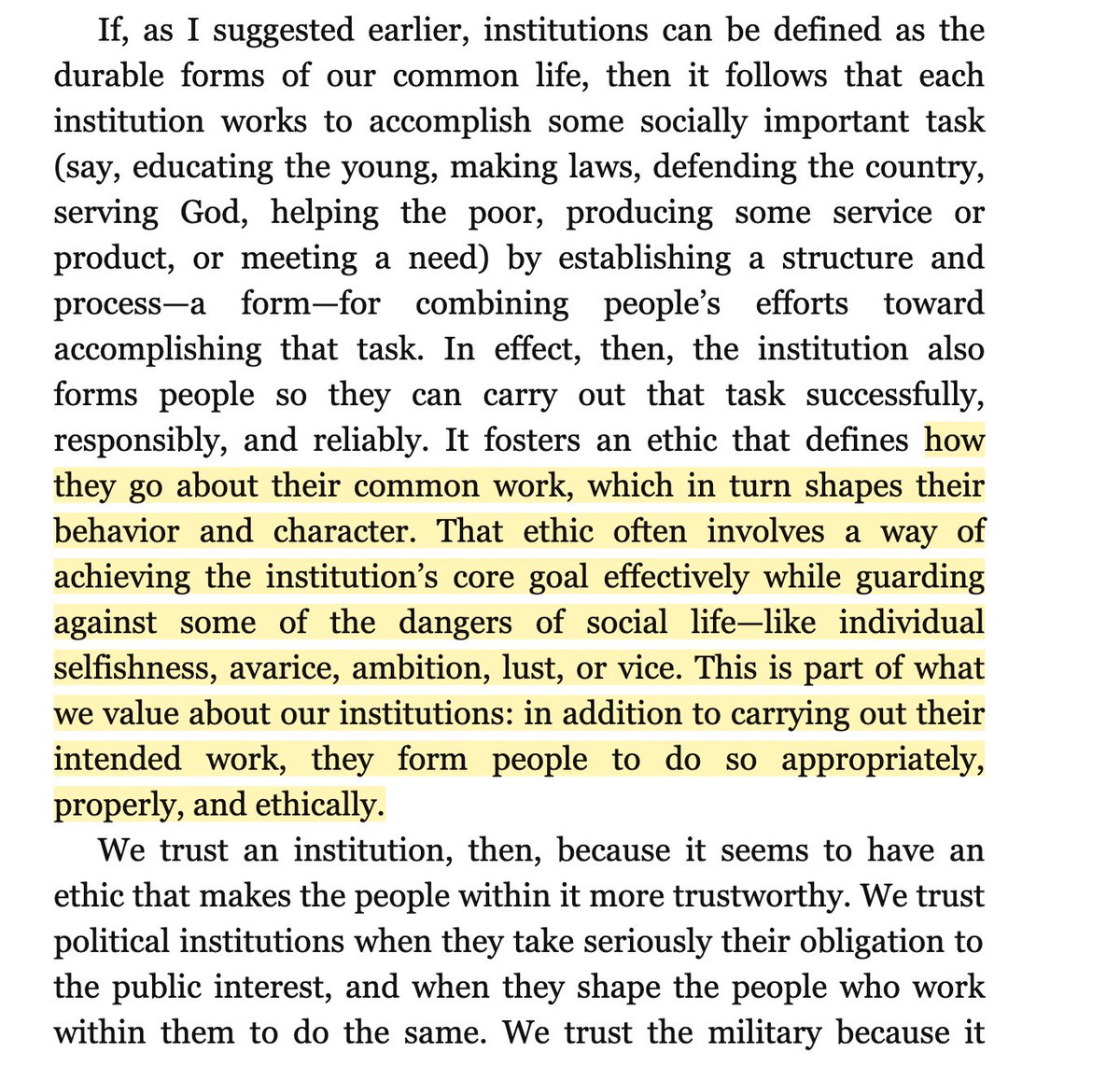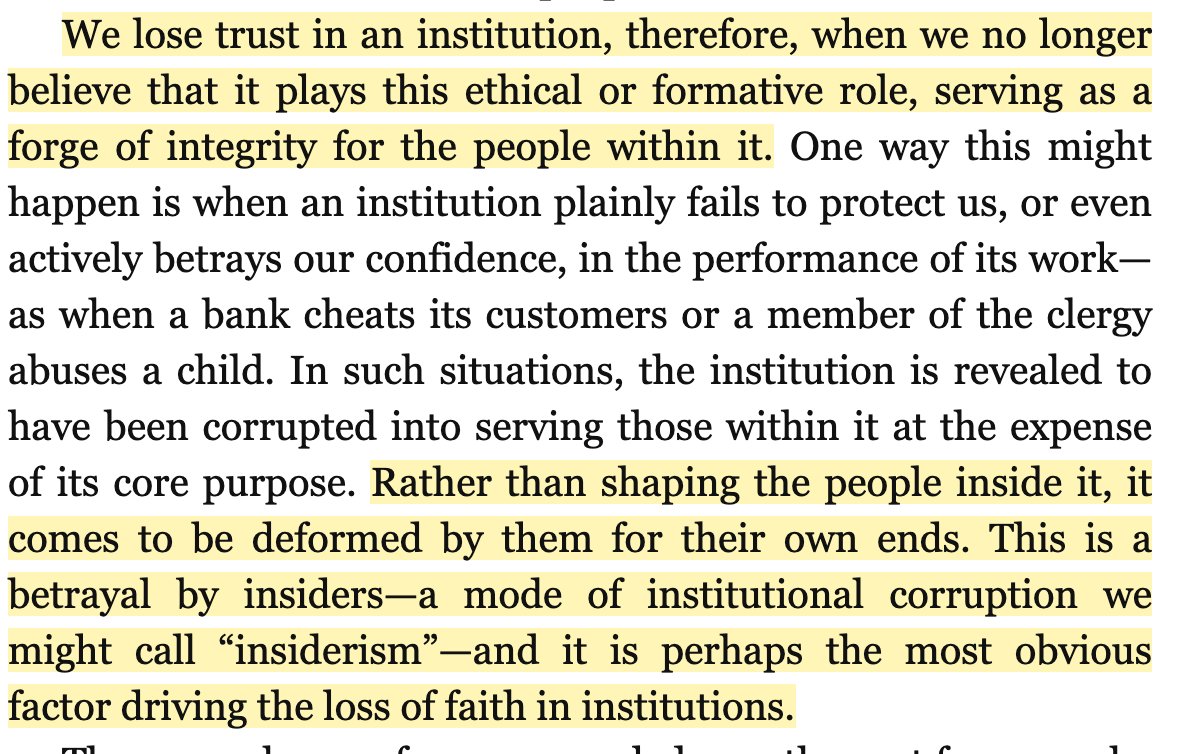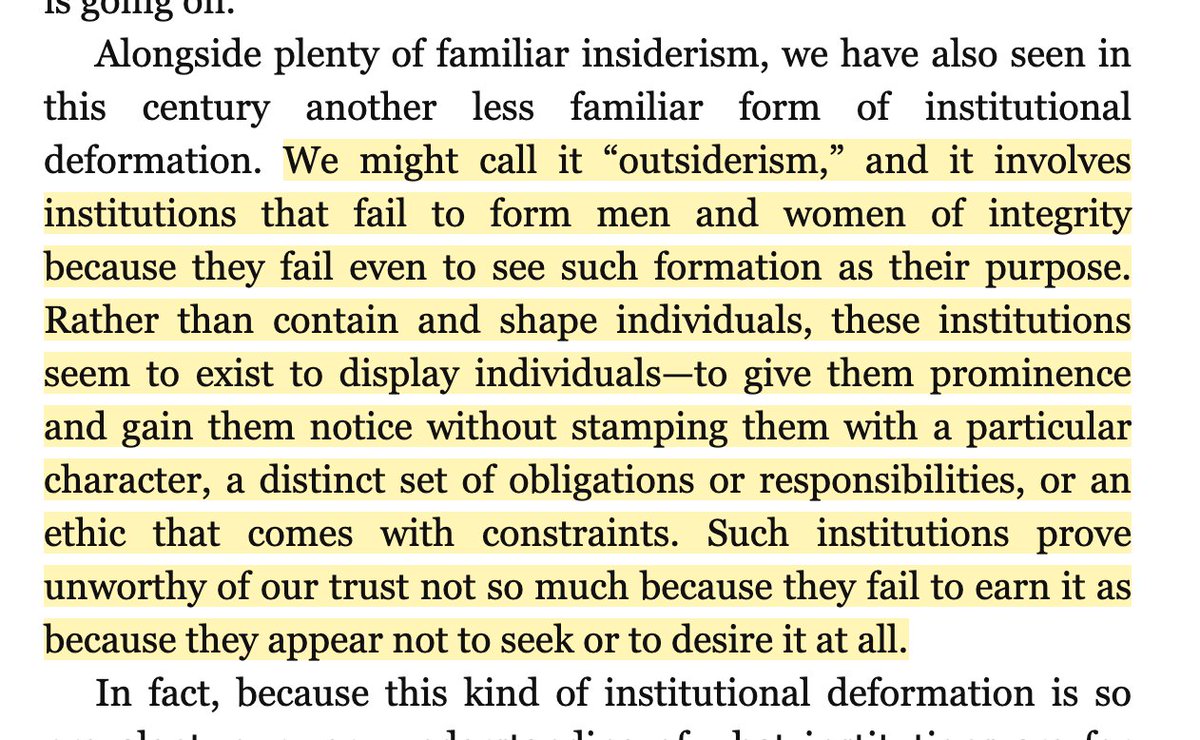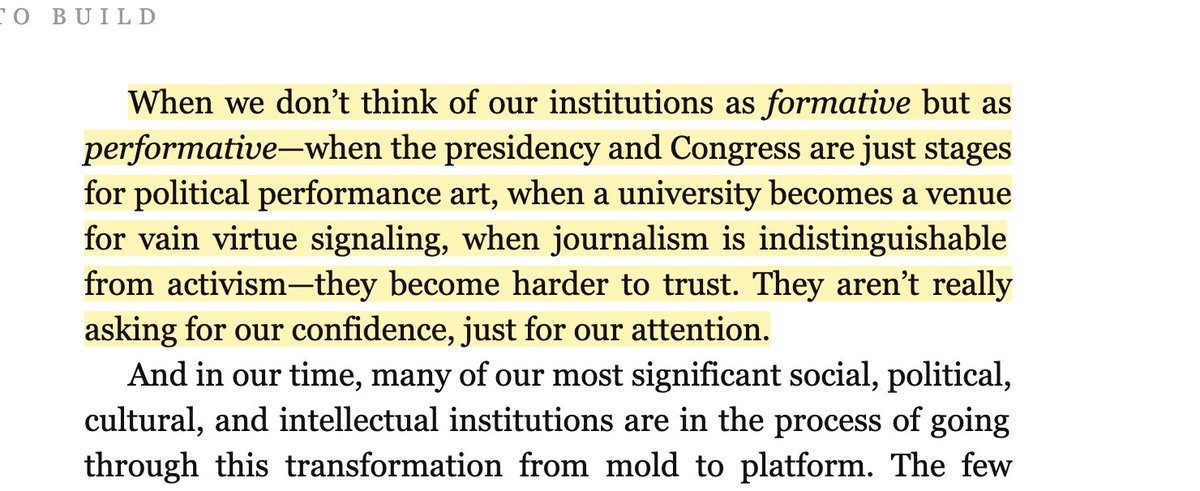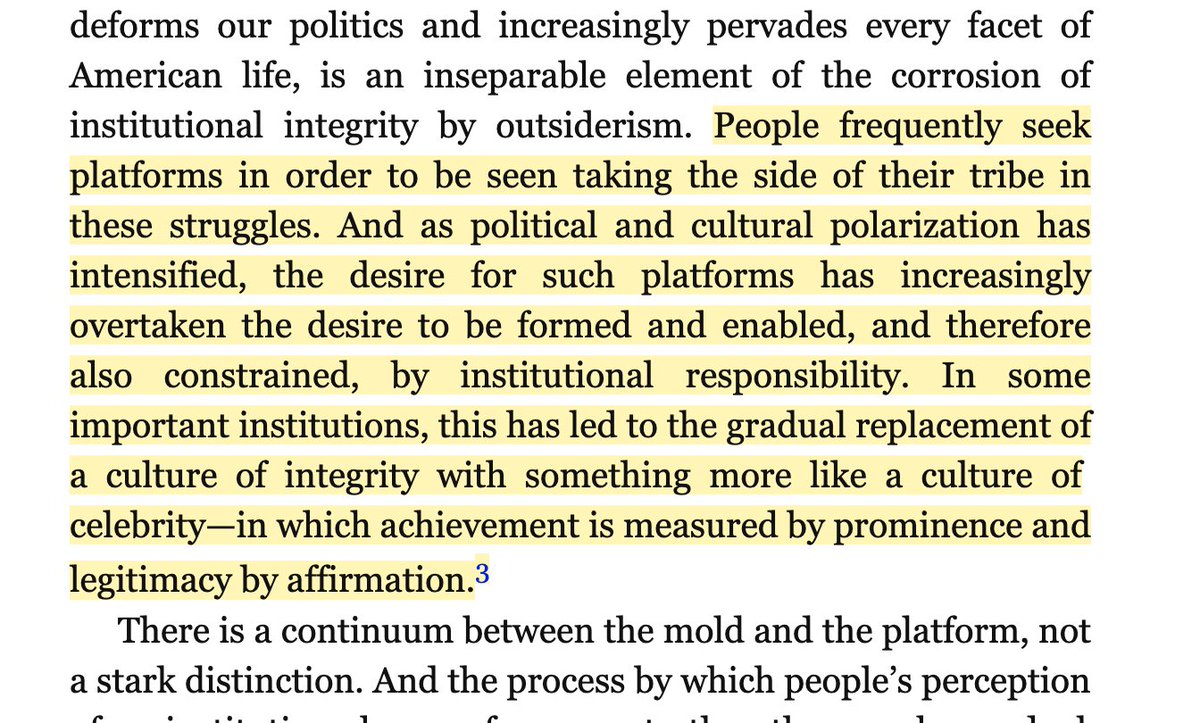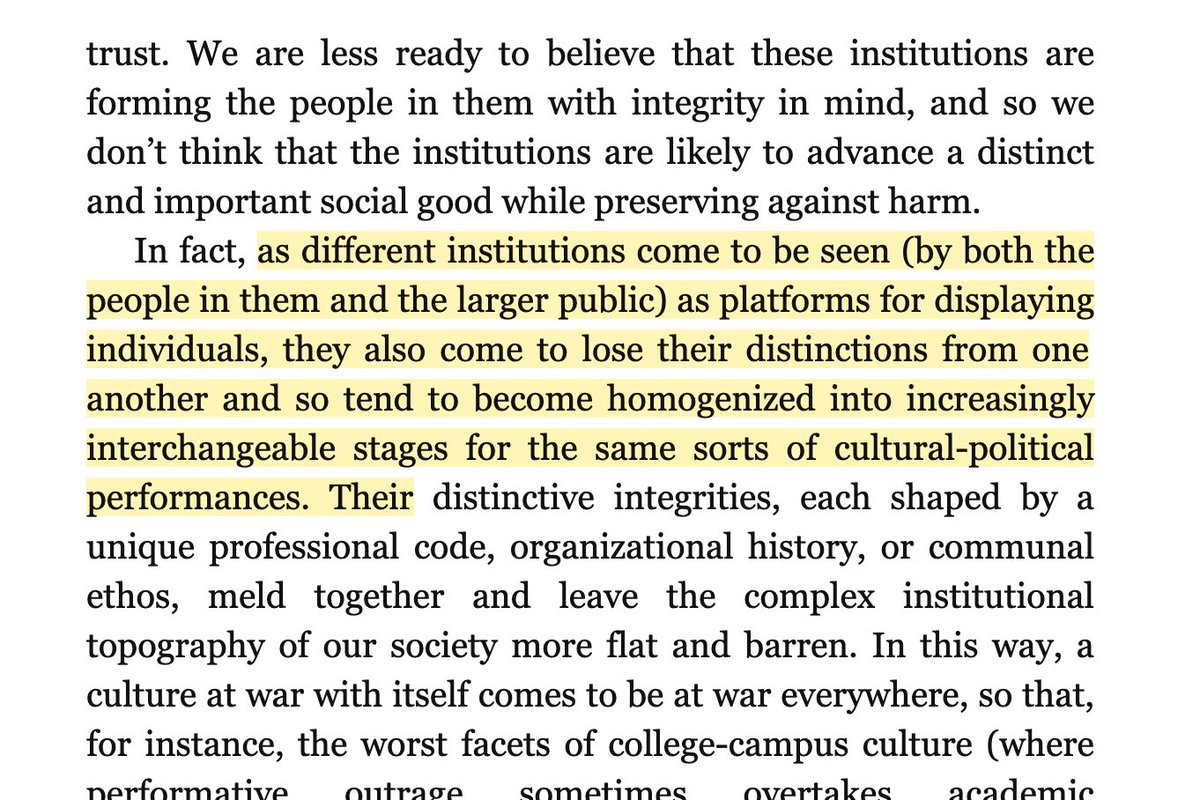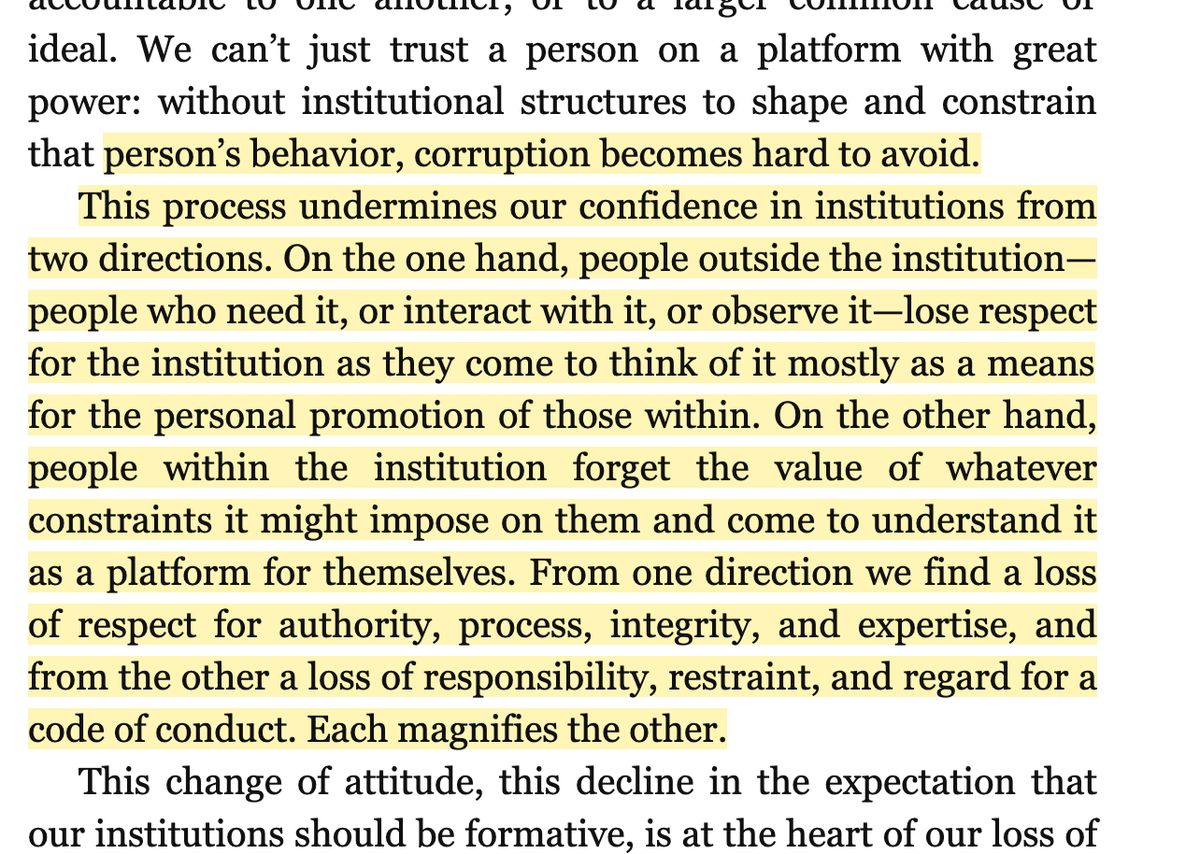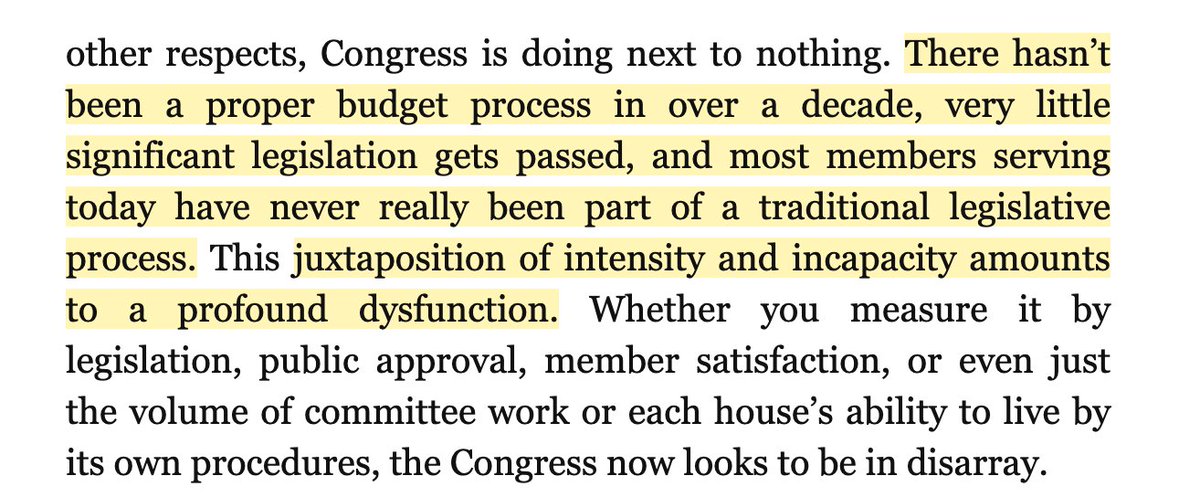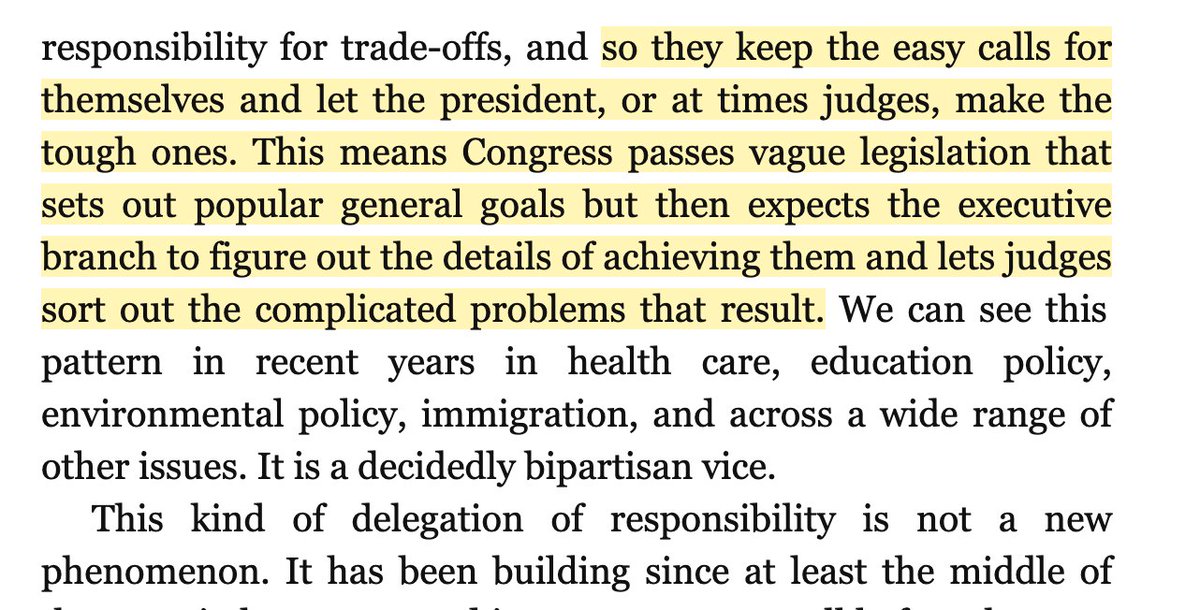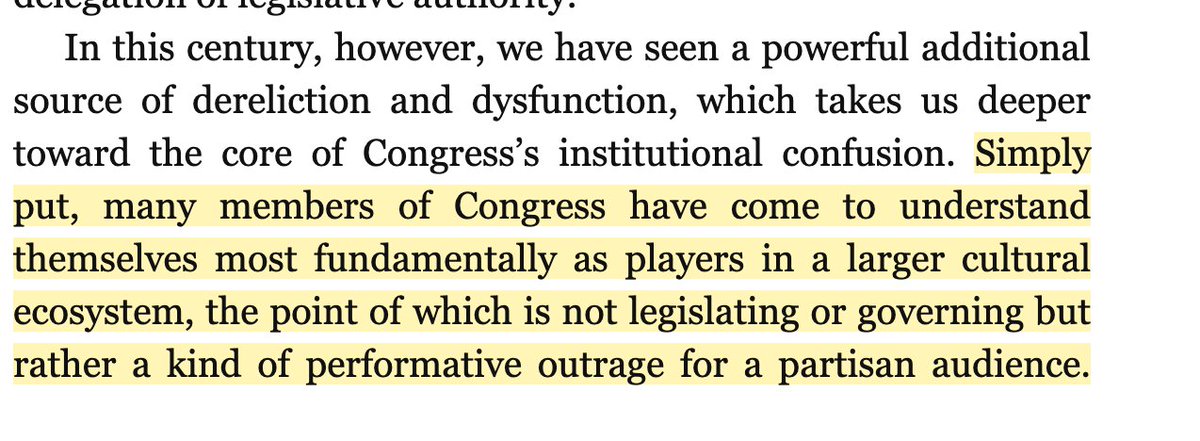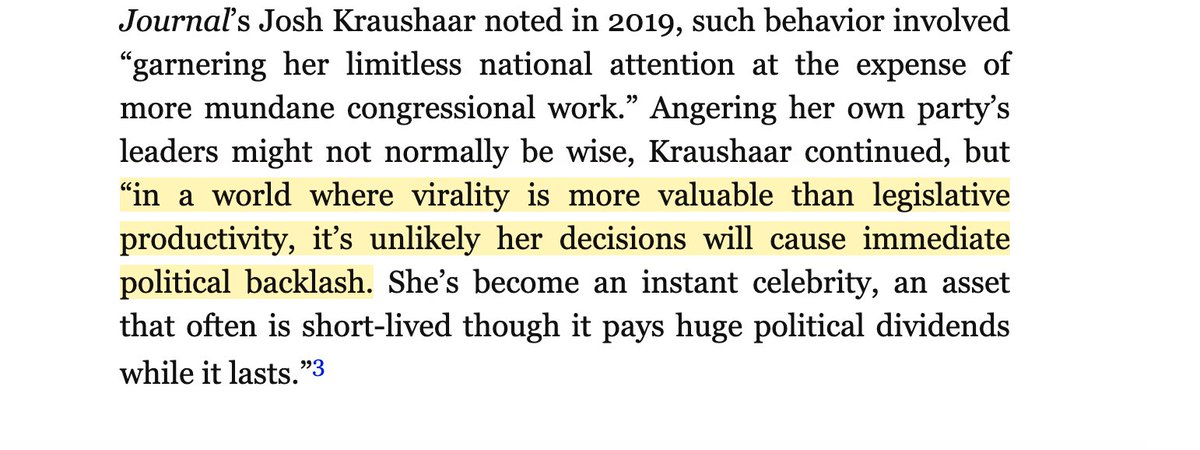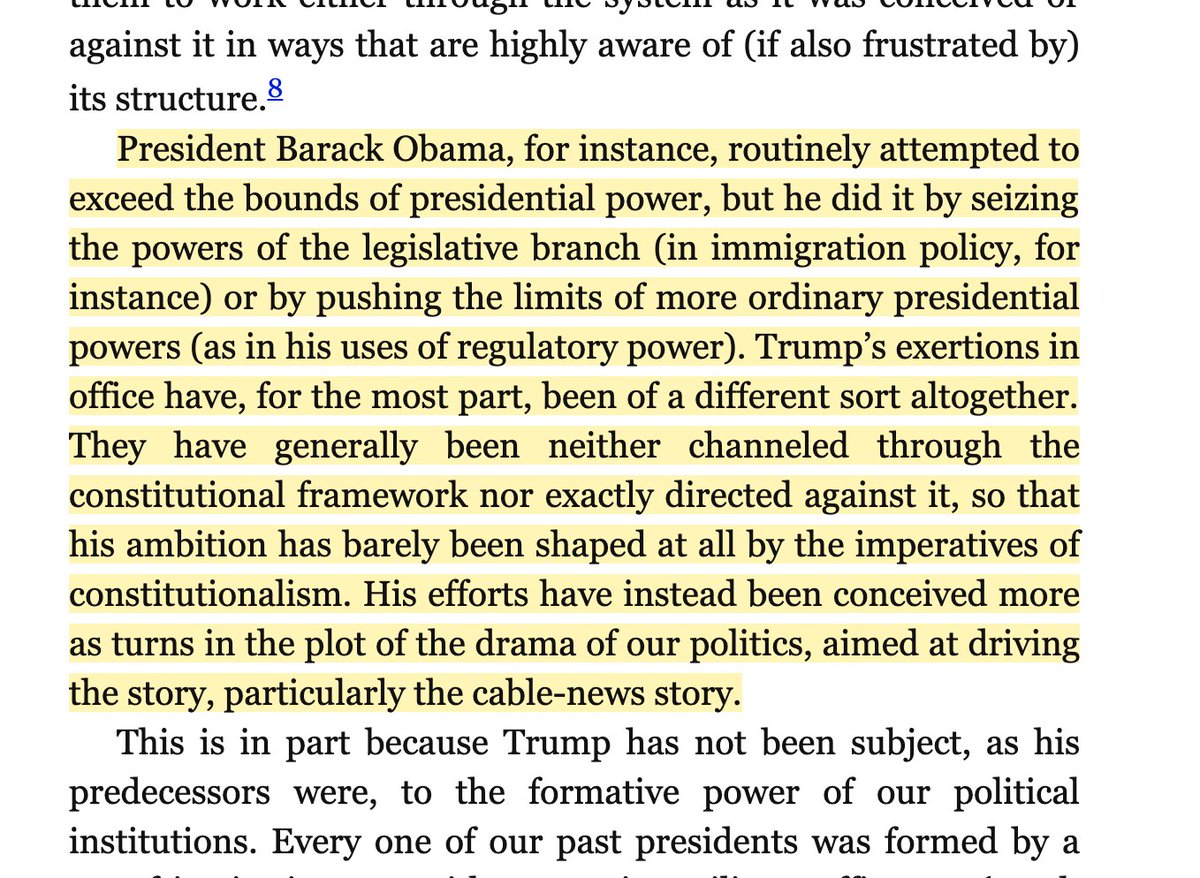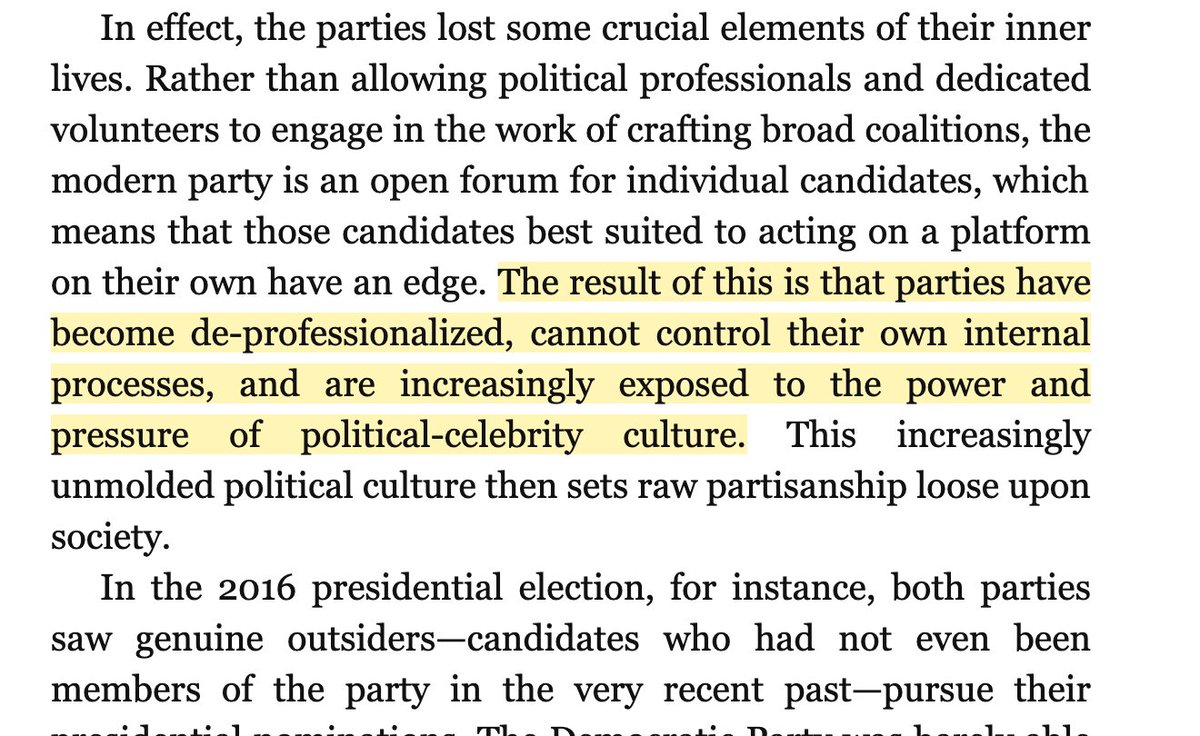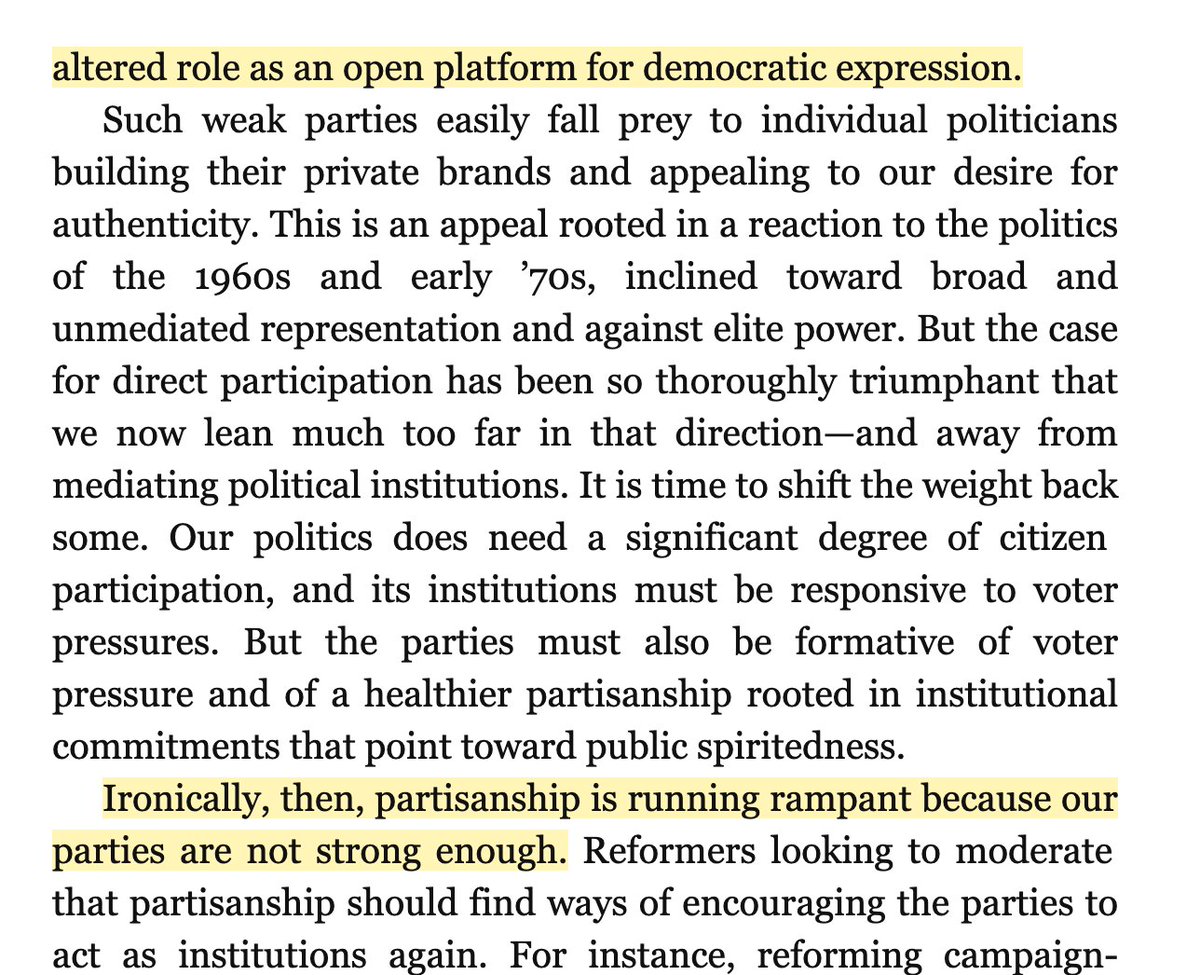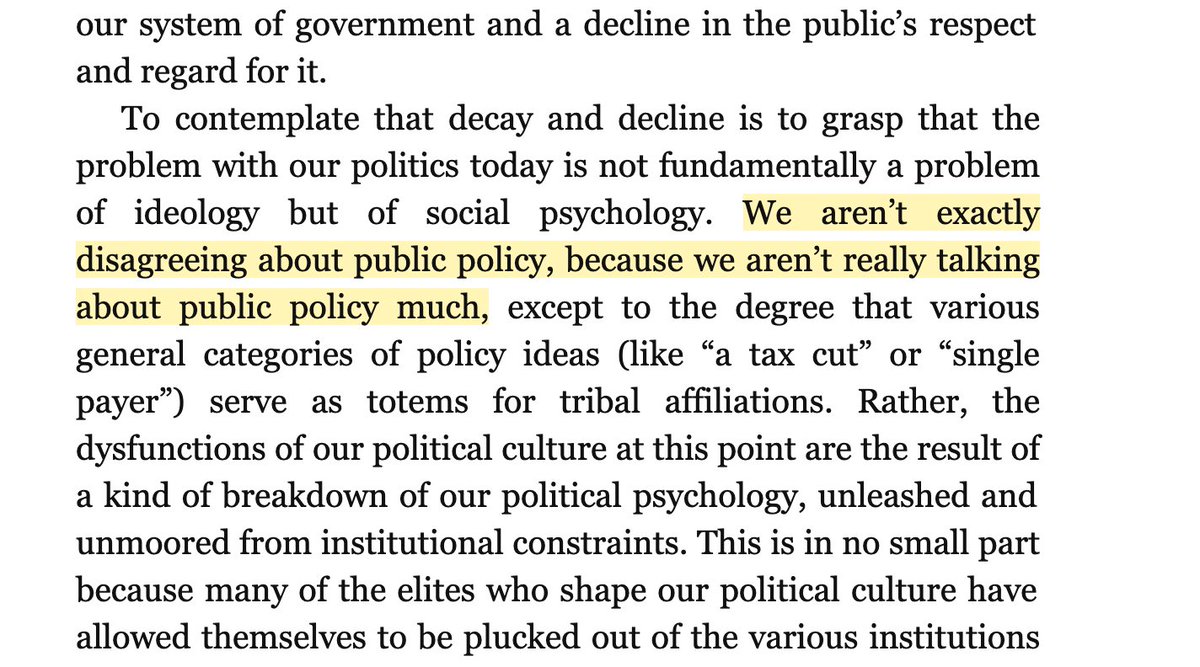Book thread for Yuval Levin& #39;s new book, https://amzn.to/2TvZxsi ">https://amzn.to/2TvZxsi&q... @NationalAffairs
Brilliant and worth the read, and I& #39;m only 1/5 done. IMO, he correctly diagnoses today& #39;s hard to decipher ill - failing institutions that are becoming platforms for celebrity.
Brilliant and worth the read, and I& #39;m only 1/5 done. IMO, he correctly diagnoses today& #39;s hard to decipher ill - failing institutions that are becoming platforms for celebrity.
"The populism of this moment in our politics is fundamentally antinomian, mistrustful of authority, and cynical about all claims to integrity. It looks to ease our disappointments by tearing down the institutions that embody them."
"We will find that the lure of cynical distance and of playing the outsider are deadly to the kind of renewal our society requires. We will notice that the culture of celebrity turns out again and again to be the enemy of a culture of integrity."
"we will find that the people who occupy our institutions increasingly understand those institutions not as molds that ought to shape their behavior and character but as platforms that allow them greater individual exposure and enable them to hone their personal brands."
IMO, book addresses issues that we& #39;ve all been talking about and maybe of which we have misdiagnosed the source. Everything from selfishness to death of expertise ( @RadioFreeTom ), failure of politics, and more. Even maybe why many have come to dislike "organized religion"
Particularly acute -
"the temptation to approach our institutions antagonistically, or to avoid them altogether, has grown very strong. When we look for solutions, we tend to look not to institutions but to individuals, movements, ideals, or maverick outsiders.
"the temptation to approach our institutions antagonistically, or to avoid them altogether, has grown very strong. When we look for solutions, we tend to look not to institutions but to individuals, movements, ideals, or maverick outsiders.
This is a BRILLIANT point. So many problems are attempted to be solved by bandaids and fixing the symptoms rather than the disease. I see this constantly. Smaller fixes instead of institutional or systemic ones.
We& #39;re losing faith in institutions - for good reason. But Yuval suggests too many times we& #39;re looking to the symptoms of the disease - the celebrity - as answers, rather than looking to treat the disease - institutional failure
Don& #39;t trust insiders who constantly proclaim to be outsiders.
When we don’t think of our institutions as formative but as performative—when pres & Congress are just stages for political performance art, university a venue for vain virtue signaling—they become harder to trust. They aren’t really asking our confidence, just for our attention.
"performative" is truly the word of our social moment.
"we find that many holders of elected office now spend much of their time participating in the cultural theater of our politics—often complaining dramatically about the corruption of the very institutions in which they hold positions—more than playing the role the system assigns"
"Ppl frequently seek platforms in order to be seen taking the side of their tribe in these struggles...led to the gradual replacement of a culture of integrity w something more like a culture of celebrity—in which achievement is measured by prominence & legitimacy by affirmation"
"as diff institutions come 2b seen (by both people in them & public) as platforms for displaying individuals, also come to lose distinctions from 1 another & so tend to become homogenized into increasingly interchangeable stages for same sorts of cultural-political performances"
"From one direction we find a loss of respect for authority, process, integrity, and expertise, and from the other a loss of responsibility, restraint, and regard for a code of conduct. Each magnifies the other."
"As we have called upon each American to become more fully himself or herself, we have implicitly put aside the notion that our social institutions exist to shape us."
Here I disagree w Yuval - individuality need not bump against institutions but can exist within them & outside
Here I disagree w Yuval - individuality need not bump against institutions but can exist within them & outside
"over the decades, our popular culture has increasingly become a celebrity culture, in which exposure, prominence, audience, and the appearance of authenticity are paramount. In many domains of American life, this has tended to blur the distinction between reality and image"
"Transparency is a necessary guard against insiderism, but in excess it can easily rob an institution of any inner life, and so can naturally leave people holding institutional roles with the impression that performing for an outside audience is all they’re doing."
^ SPOT ON. See: https://www.legbranch.org/the-power-of-privacy-in-legislative-negotiations/">https://www.legbranch.org/the-power... @LegBranch
What ought to be:
"“What should I do here, given my role or my position?” As a parent, a teacher, a police officer, a scientist, a senator, or a pastor, what is my responsibility in this particular situation?"
"“What should I do here, given my role or my position?” As a parent, a teacher, a police officer, a scientist, a senator, or a pastor, what is my responsibility in this particular situation?"
"Simply put, many members of Congress have come to understand themselves most fundamentally as players in a larger cultural ecosystem, the point of which is not legislating or governing but rather a kind of performative outrage for a partisan audience."
“in a world where virality is more valuable than legislative productivity, it’s unlikely her decisions will cause immediate political backlash." @HotlineJosh
All this, as opposed to what ought to be - "Members who allow themselves to be molded by Congress take the shape required by the place that the legislature is assigned in our system, and they make its interests their own."
"Every institution needs an inner life ... But Congress has progressively lost that inner life, as all of its deliberative spaces have become performative spaces, everything has become televised, and there is less and less room and time for talking in private."
"His efforts have instead been conceived more as turns in the plot of the drama of our politics, aimed at driving the story, particularly the cable-news story."
"Trump’s formative institutional experiences therefore shaped him to thrive in an era of politics as entertainment."
...
"...a kind of commentator in chief rather than a political actor, is a newer and more ominous phenomenon."
...
"...a kind of commentator in chief rather than a political actor, is a newer and more ominous phenomenon."
On political party institutionalism eroding
"The result of this is that parties have become de-professionalized, cannot control their own internal processes, and are increasingly exposed to the power and pressure of political-celebrity culture."
"The result of this is that parties have become de-professionalized, cannot control their own internal processes, and are increasingly exposed to the power and pressure of political-celebrity culture."
"We aren’t exactly disagreeing about public policy, because we aren’t really talking about public policy much,"
Onto professions -
"In uncertain situations, a professional asks himself, “What should I do here, given my professional responsibilities?” And his profession will generally have an answer to that question."
"In uncertain situations, a professional asks himself, “What should I do here, given my professional responsibilities?” And his profession will generally have an answer to that question."
And media
"Although their instinctive parlance is the vocabulary of downtrodden masses crying out against the abuses of an oppressive elite, they frequently accuse that elite of being too weak, not too strong."
"Although their instinctive parlance is the vocabulary of downtrodden masses crying out against the abuses of an oppressive elite, they frequently accuse that elite of being too weak, not too strong."
"One generation came of age where they entered this esteemed institution and tried to find a way to fit into it, and this other generation has an expectation that the institution will change to accommodate them. That’s the essence of the tension.”"

 Read on Twitter
Read on Twitter